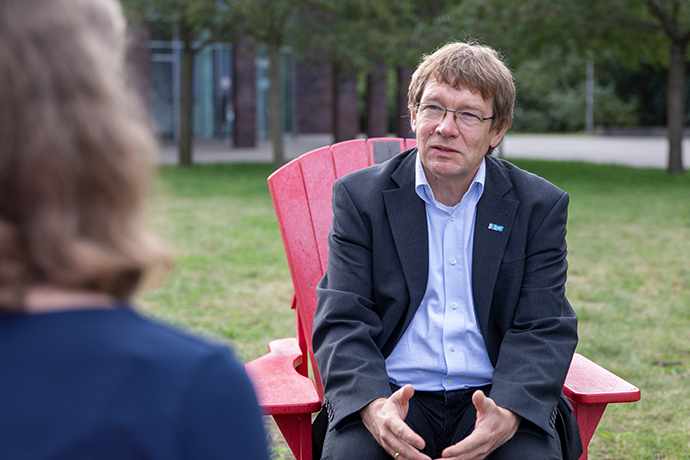
Prof. Dr. Christoph Lüth
Organizational unit
Cyber-Physical Systems
Address
(Bremen)
Mehrzweckhochhaus (MZH)Bibliothekstraße 528359 Bremen

Publications
All publicationsProfile
Christoph Lüth is vice director of the Research Department Cyber-Physical Systems at the German Research Centre for Artificial Intelligence (Deutsches Forschungszentrum für Künstliche Intelligenz, DFKI) in Bremen.
His research covers the whole area of advanced system development, from theoretical foundations as found in category theory to the development of tools to construct or verify software, and applications in practical areas such as robotics. The overall theme of his work is how to reliably construct correct software.
He holds a PhD from the University of Edinburgh, and a Habilitation from the University of Bremen, where had been working as a lecturer (associate professor) prior to joining DFKI at the start of 2006. He has authored or co-authored over eighty peer-reviewed papers, and was the principal investigator in several research projects.
In addition to his work at DFKI, he is a professor for computer science at the University of Bremen, where he is regularly teaching courses about functional programming, programming languages, and formal methods.
ExaVerse
Extension Verification EnvironmentThe design of modern chip architectures is increasingly moving towards heterogeneous structures, where specialized computations are performed by optimized processor units such as specific…
PROTECT
Proving Next Generation Secure SystemsCyber attacks on companies and public institutions are increasing dramatically worldwide. The PROTECT project, funded by the Cyber Agency, is developing solutions to make IT systems more resistant to…

EASEPROFIT
Agile and Post-Quantum-Secure Protocols for the Finance IndustryQuantum computers could be able to break the asymmetric cryptographic methods currently in use by 2030, creating a need for quantum-resistant encryption standards. The financial sector faces…

DI-OCDCPro
Open source chip design infrastructure as a learning and competition platform for students and young talentsIn order to strengthen the innovation ecosystem for chip design in Germany and to attract more young people to the important field of semiconductor development and chip design, the DI-OCDCpro project…

SIGN-HEP
Safe and industrially applicable normed HSM based on open EDA tools and processorsOpen source approaches in hardware design have received increased attention in recent years; there are many promising approaches, but not yet industry-wide acceptance as in the software area. This…
